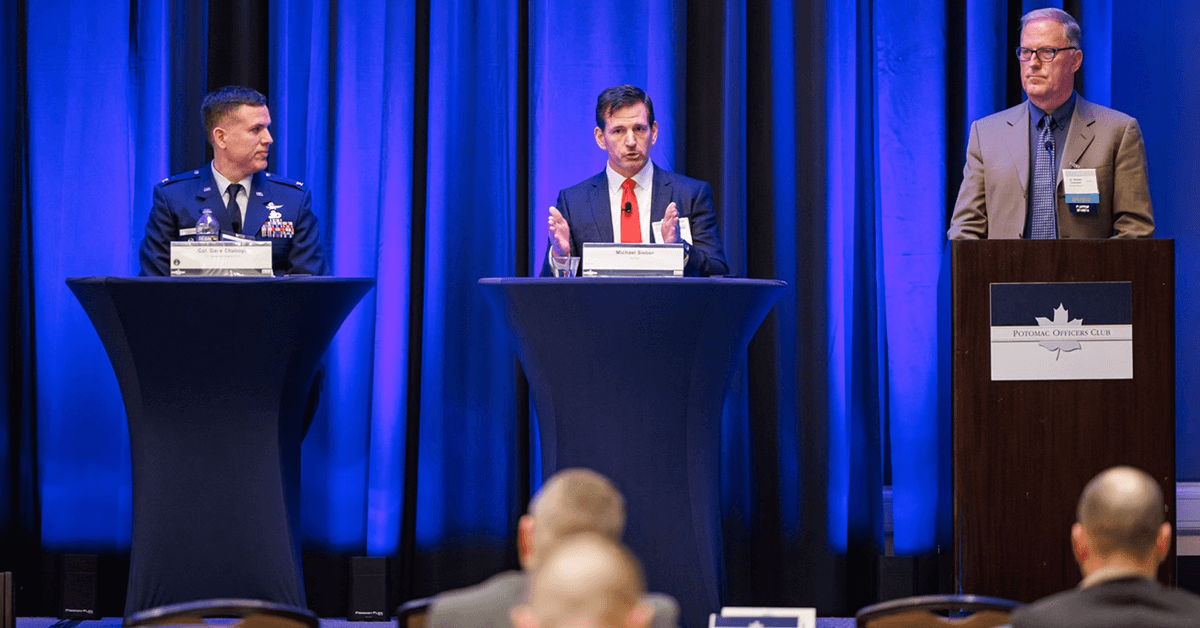The digital ecosystem has, over the course of the last two decades—but especially in the last five years—become just as competitive a battlespace as the physical domain. This is due to the near-omnipresence of internet connectivity; about 17 billion devices are connected to the internet as of this year. This widespread connectivity creates the opportunity for exploitation and thus instigates a necessity of defense. It also engenders opportunities for surprising electronic warfare tactics and forms of influence, said Dr. Bill Casebeer, director of artificial intelligence and machine learning at Riverside Research.
Casebeer moderated a panel discussion on the virtual battlespace at the Potomac Officers Club’s 10th Annual Defense R&D Summit on Wednesday. During the conversation, he also mentioned that the many technical innovations in AI and ML over the last five years would shock someone living 20 years ago.

For comprehensive discussions on how the government and military are taking AI seriously, and to learn their AI strategies and how government contractors can help, register to attend POC’s 5th Annual AI Summit. The March 21st event will be held at Falls Church Marriott Fairview Park in Virginia.
Amidst the panel, Command Sergeant Major Jesse Potter of the Military Intelligence Brigade drew a distinction between the virtual battlefield and the virtual battlespace. He said the latter is “a multi-dimensional system-of-systems” whose compounding impacts have the potential to cause several times the damage they might in a traditional, physical setting. Whereas in a physical dimension, two plus two equals four, Potter explained metaphorically, in the virtual battlespace, two plus two equals nine.
“One small action in one domain can have catastrophic actions in another domain that you don’t even actually have to physically touch,” Potter emphasized. “Just the interaction across the dimensions, whether it be physical information or human, and how they perceive your actions, has significant influence across both domains.”

Due to the vastness of the internet and the activities taking place on it, panelist Michael Sieber, cybersecurity director at Maximus, recommended targeted, incremental actions in order to exert influence in the cyber sphere.
“You’re not going to go and change the strategic narrative for an entire country, but at the tactical level, you can probably have small changes to influence tactical maneuver from their perspective,” Sieber outlined.
Sieber went on to explain that a military operation could fix an adversary’s battalion in one position through a preplanned maneuver that would “allow you to have force superiority down the road and engage effectively.”
From a cybersecurity tactics perspective, Sieber posited that self-awareness and self-knowledge of an organization’s systems, data and moving parts are key.
“Know your networks, know where everything is at, have a good understanding and then a deliberate plan to protect your data that is traversing those networks through zero trust architecture,” he said.
From an ethical standpoint, however, Col. Dave Chaboya, senior materiel leader for the Department of the Air Force, cautioned that when building the login and authentication systems that make up zero trust architecture, technologists can’t be overly intrusive.
“We could certainly roll out a system to identify everybody through full biometrics and run through a full process like that. But is that going to be a good user experience and is that going to be something that makes sense from an ethical perspective?” Chaboya submitted.
Dr. Monique Beaudoin, associate research scientist at the University of Maryland Applied Research Laboratory for Intelligence and Security also participated in the panel.
Weren’t able to attend the Defense R&D Summit? Then make sure you don’t miss Potomac Officers Club’s stellar roster of industry-leading GovCon networking and information symposiums, like the March 5th Space Summit and the March 21st AI Summit. Browse the full schedule to see which events are right for you and your team here!




